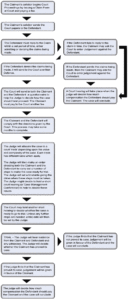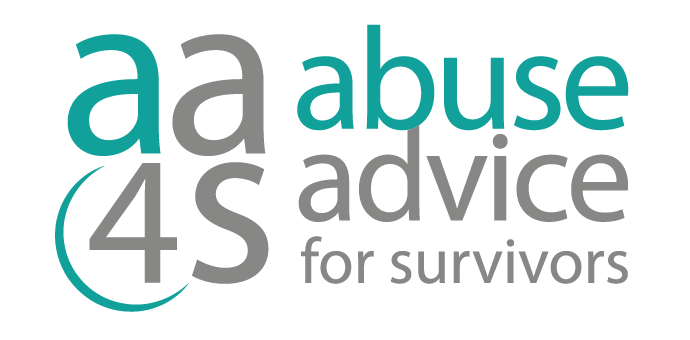Frequently asked Questions & Answers
The Criminal Court system in England and Wales is distinct from the Civil Court system. (Scotland and Ireland each have their own legal systems.) In simple terms, the criminal court's role is to determine whether someone is guilty of a criminal offence, whereas the civil court's role is to resolve disputes between two or more individuals. (The Criminal Court system is described in detail in the section "Taking my abuser to Court").
The Civil Courts are separated into two types: County Courts and High Courts. Civil court judges will consider matters including divorce, child care and adoption, consumer disputes, insolvency, contract disputes, and compensation claims involving accidents or personal injuries, among other things.
The majority of civil cases will be heard in a county court. The High Court will frequently consider disputes involving extremely significant quantities of money or extremely complex issues.
The majority of communities have a county court. Most bigger towns and cities have both a High Court and a County Court, which are frequently housed in the same Court building.
If you were abused as a child, you may be able to seek compensation from the person who abused you or from someone else who is liable for that person, such as their employer.
For example, if you were in the care of the Local Authority at the time of the abuse, such as in a Children's Home or Foster Care, the Local Authority (the local council or social services) will almost certainly be held legally responsible for the abuse. As a result, you may be able to seek compensation from the authority.
If you were not under the care of the Local Authority and were mistreated by a family member, neighbour, or stranger, you may be able to sue that individual directly. You may also be entitled for Criminal Injuries Compensation.
Any claim for compensation is subject to legal time limits. In general, a person seeking compensation for a personal injury, whether physical or psychological, must file a compensation claim in court within three years of the date of the 'accident' or incident giving rise to the claim. This is referred to as the limitation period.
If the claim is made against another person or organisation, such as a Local Authority, the time restriction is three years.
If a person was hurt as a child, the legal time restrictions would not begin to run until the child reached the age of 18 and became an adult.
The legal deadlines are extremely severe. But, depending on the unique circumstances of the case, the Judge may have a discretion to allow the case to proceed outside of the typical time constraints. This authority is only granted in extreme circumstances.
In practice, many victims of child abuse do not report the abuse or are unable to talk to anybody about the abuse, frequently for many years after the abuse, due to the psychological damage created by the abuse. This can make it difficult to pursue a legal claim for compensation. The Courts, on the other hand, are beginning to recognise these considerations. Before filing a claim in such situations, a Child Abuse Lawyer should always be consulted.
Depending on the type of their learning challenge, people with learning disabilities may not be subject to the same time constraints.
If a child abuse victim or an appropriate adult acting on their behalf wishes to file a compensation claim, they should get legal advice as soon as possible.
If the Defendant admits the claim after receiving the claim form, he or she will send an admitting form to the court. The court will then enter judgment against the Defendant.
This signifies the Claimant has won his or her case and will not have to appear in court to prove it.
Unless the Defendant and the Claimant reach an agreement before the final hearing, the court will have to set a date when the amount of compensation can be determined by a Judge.
At this stage in the legal process, it is improbable that the Defendant will concede the claim of child abuse. It is more likely that he or she will deny the claim by filing a formal Defence with the court.
Upon receiving the claim form from the court, the Defendant denies the claim by sending the court a formal Defence. Usually, the Defendant will instruct a solicitor to prepare the Defence. The Defendant has a limited time to send the Defence to the court. If the time limits are missed, then generally the Claimant will be entitled to ask the court to ‘enter judgement’ against the Defendant.
Once the Defence has been filed, the Judge will then ask the solicitors for both parties to fill in a questionnaire about the case. This will help the Judge to decide how the case should proceed. At this stage, the case is usually under the control of the Judge who will determine how the case should proceed.
The Judge will then allocate the case to a particular ‘track’ within the court system which will broadly guide the way in which the case proceeds. There are 3 court ‘tracks’, depending upon the value and complexity of the case. These are:
(a) The multi track, for all claims worth over £25,000 or where there are complex issues of law. Most child abuse cases will be allocated to this track.;
(b) The fast track, for claims of up to £25,000 and
(c) The small claims track, for low value cases of less than £1,000 (where a personal injury is involved), or less than £5,000 where there is no injury.
The court will then set a timetable, specifying dates for the parties to comply with certain court ‘directions’. The court directions will be in the form of a court order requiring the parties, for example, to exchange documents, experts reports and witness statements. The court timetable may be spread out over a period of months, often up to 12 months.
Only after the parties have complied with these directions will the court then decide whether the case is ready to be heard at trial.
See our diagram explaining these procedural steps from the beginning of a case to trial under the section: ‘The Litigation Process – Simplified’
Throughout the whole case the solicitors for both parties will usually try to resolve the dispute without the need for a court trial, with a view to reaching an ‘out of court settlement’.
If settlement can not be reached before trial, the court will set a trial date when all of the parties, their solicitors, medical experts and witness will all be required to attend. Usually, a specialist barrister will be instructed to attend court on behalf of the parties.
The purpose of the trial is for the judge to try to resolve the dispute between the parties. The Judge’s role is to hear the facts and the evidence, to consider and apply the appropriate law and to decide whether the Claimant is able to prove its case against the Defendant.
Unlike in the criminal court, there will generally be no jury to hear the evidence.
Evidence can take the form of 'oral' evidence, in which a person talks to the court in the witness box; written evidence, such as a statement, document, or letter; 'forensic' evidence, such as DNA test results; or any other evidence, such as a knife.
The Claimant is usually the one who provides the court with first-hand evidence. Other witnesses may be called to support or 'corroborate' the Claimant's evidence.
A Court requires evidence before it can rule on the issues at hand. The Judge will expect the Claimant to produce evidence.
If the case goes to trial, the Claimant will be compelled to appear in court and will normally be required to stand in the witness box, unless they have a learning disability and may be unable to give testimony. The Claimant's counsel (a barrister or a solicitor) will question the Claimant based on their witness testimony in order to explain the Court what transpired, thereby presenting evidence.
A Defendant has the right to object to any evidence presented by the Claimant. To accomplish this, the Defendant's lawyer will question the Claimant in order to discredit or criticise their evidence. This is known as cross-examination.
The court may also decide to question the Claimant in order to clarify any aspects of their evidence.
The same method will be followed with any subsequent witnesses.
The Defendant will normally offer evidence in the same manner, and they may have witnesses to back up their case. The same procedures apply, and the Claimant's counsel will have the same right to cross-examine the Defendant and Defence witnesses.
The judge will deliver his or her decision after reviewing all of the facts and legal arguments. Unlike in criminal court, if the Judge believes that the Claimant has made out his/her case "on the balance of probability," the Court will rule in favour of the Claimant and then determine the amount of compensation to be granted.
The amount of compensation is determined by the facts of the case. Each case will be distinct.
Compensation, or 'damages,' is often classified into two categories:
(a) General Damages for suffering and pain; and
(b) Special Damages, for specific items of financial loss, both past and future.
General damages are granted for the Claimant's physical and psychological pain and suffering. Psychological harm is typically shown as Post Traumatic Stress Disorder ('PTSD') and must be documented in writing by a medical specialist such as a Psychologist or Psychiatrist.
The Judge will use the medical report to establish how long the pain and suffering have lasted and, if it is still ongoing, how long it is anticipated to last in the future.
The Judge will look at instances which have been determined by courts in earlier cases involving comparable 'injuries', which will be used as 'precedents'. The Court will then award reasonable compensation, taking into account all possible outcomes and adding interest.
The value of any Special Damages or items of financial loss, such as lost earnings, the cost of therapy, or any other measurable loss experienced as a result of the abuse, either in the past or in the future, will then be determined by the Judge.
The final award of compensation will be issued, and in the instance of minors or adults with learning disabilities, instructions will be given on how the compensation should be invested or held in trust for the future.
No, the civil court's role is to settle a dispute between the parties.
The Judge may order the Defendant to pay compensation and costs to the Claimant, and in some situations, the Defendant may be penalised with a higher interest rate or additional damages.
The Judge in the Civil Court does not have the authority to imprison the Defendant. This is the role of the Criminal Court (click here to read 'Prosecuting my Abuser').
While recent changes in the law have aided in the speeding up of the compensation system, the civil court process can still take a very long time, especially when complex issues or facts are involved, and in the case of child abuse actions, where allegations of abuse often date back many years and can require tracing many records.
The entire legal process, from the initial approach by the Claimant to the Solicitor to the final trial, can take many years and can take up to three years on average. For many claimants, the procedure is long and gruelling, and it can be intimidating and bewildering. This guide is meant to assist in explaining the complex procedures so that the Claimant has a better knowledge of the entire process. Nonetheless, it is critical to always obtain legal counsel and to ask the solicitor any issues that arise along the road. Understanding the system and procedures better would assist to reduce frustration and confusion.
The litigation process in England and Wales' Civil Courts is difficult. Getting involved in a legal dispute is stressful for everyone involved. Failure to comprehend the complexities of court regulations, court procedure, and the length of time needed frequently adds to the stress.
The chart below seeks to highlight and clarify the most critical steps in a civil compensation claim. When combined with our civil court handbook, 'The Civil Court Procedure Explained,' it is intended that anyone involved in the litigation process would have a greater grasp of the system, making the road to trial go more smoothly.

Be certain of the time, date, and location of the Court hearing, as well as its actual location. Every Court has its own booklet that tells you where it is and if it has any unique facilities. If you request it, the Court will send you a pamphlet.
If you have a disability that makes going to Court or communicating in Court difficult, you should notify the person who asked you to go to Court ahead of time so that they fully appreciate any challenges you may have. You should also contact the Customer Service Officer at the relevant Court. You can also call The Court Service Disability Hotline at 0800 3583506 between 9.00 a.m. and 5.00 p.m., Monday through Friday. Calls to this number are free. You can utilise the mini-com service on 0191 4781476 if you are deaf or hard of hearing.
Before coming to court, make sure you know what documents or papers you will need to bring to court and that you have all of the necessary case materials. Check that they are in the correct order and that you can quickly and easily refer to them.
Courts are often quite formal, and you should dress accordingly.
The amount of time you spend in Court is frequently greater than you anticipated. Delays are common, and you should be prepared for them. You may bring a companion to keep you company, or you could bring a book or something to keep you occupied while you're there.
If possible, visit the Court before the day you are scheduled to appear as a witness to observe where the hearing will take place. Having a better understanding of what the Court looks like from the outside and inside will usually assist to alleviate any concerns you may have. You can request that a member of the Court staff show you where you will give your testimony. It is best to make this arrangement with the Court ahead of time so that they can schedule an acceptable time.
Some attorneys may want you to come to their office before going to Court so that you can discuss the evidence you will submit and get a sense of the type of questions you might be asked at the Court hearing.
Always come on time. When you arrive at Court, notify the receptionist or the Court usher of your arrival and the name of the case in which you are involved. The Court usher will typically be dressed in a black gown. A record will be made that you have come, making it simpler for the other individuals engaged in the case to find you, potentially by tannoying for you over the loud speaker, so pay attention for this.
Next to the waiting area, there is usually a list of cases that are being tried in the Court that day. The list will tell you which Court your case will be heard in and who the Judge will be. This information is subject to change, so keep checking back.
If you must leave the waiting room for whatever reason, always notify the Court usher or another person involved in the case so that you can be located if necessary.
Don't be surprised if there are last-minute adjustments while you're in Court. For example, you may be notified that the case was resolved at the last minute and that the hearing is no longer necessary. Occasionally the meeting must be adjourned without your testimony, or you may be told that your testimony must be postponed until later in the day or on another day.
When it is your turn to testify, the Court usher will normally call your name and lead you to the witness box. You should stand up, or if standing is uncomfortable for you, you might ask to sit down.
Typically, witnesses are allowed to sit in Court before giving testimony and to remain in Court after giving evidence. Nonetheless, either party in the case might request that a witness remain outside of the Court until it is their turn to give evidence. If this occurs and the Judge approves, you will be informed and shown where to wait until the usher summons you to the hearing.
After entering the witness box, you will be asked to take an oath, which means you will be asked to swear that what you are about to say in Court is true. An oath is taken on the bible or another holy book, and you will be handed a card to read or told what to say by the usher. If you prefer not to swear on a sacred book, you can give the Court a pledge to tell the truth (an affirmation). It will help if you notify the usher that you want to 'affirm' or whatever holy book you want to be swore on before entering the Courtroom.
The solicitor or barrister who has summoned you to Court will initially question you about your Witness Statement. When that solicitor or barrister has asked you questions, the solicitor or barrister for the opposing party will normally ask you questions to corroborate your statement. This is known as cross-examination. The Judge may wish to question you as well.
A solicitor will typically wear a gown, whereas a barrister will typically wear a wig and gown. In addition, the Judge will frequently wear a wig and Court robes.
Depending on the nature of the case, there are various types of Judges. The Judges are addressed based on the type of Judge they are.
- A District Judge is addressed as 'Sir' or 'Madam' in the County Court.
- In the County Court, a 'Circuit Judge' is addressed as 'Your Honour'.
- A High Court Judge is referred to as 'My Lord' or 'My Lady'.
If you are confused about which type of Judge will hear your case or how to address the Judge, ask a member of the Court staff or a party's solicitor.
When providing evidence, remember to speak clearly and to address your responses to the Judge rather than the person who is asking the questions. Always try to remain calm and do not become irritated if you are asked questions that you believe are unjust. If you do not comprehend a question or cannot hear what was stated, do not be hesitant to express your confusion. If you need to refer to any papers, you must first obtain permission from the Judge.
The length of your time in the witness box will be determined by the questions you are asked. This could range from a few minutes to several hours.
After you have delivered your testimony, you will be told that you are'released' and can leave the hearing. You should only leave the Court premises if you are released before the case is completed.
If you are released, for example, during a lunch break or other break, you may be requested to return later that day or another day. The Judge will instruct you not to speak to anyone about the matter until you have completed your testimony.
The solicitor who wants you to testify may arrange to contribute to:
Your travel expenses to and from the Court.
A reasonable payment to reimburse you for any lost income as a result of your appearance in court.
The expense of overnight accommodation, if required.
However, the costs that can be paid in regard to expenses are merely a contribution, and in some situations are limited to a certain amount. They would almost never fully reimburse you for any wage loss.
Always be prepared to appear in Court if summoned. In advance, request full details from the solicitor or the Court, including:
- the date, time, and location of the Court hearing;
- a map indicating how to reach the Court;
- information about public transportation and nearby parking lots; when the Court building is open;
- Details about the Court's facilities, such as food and drinks, a phone, and separate waiting spaces.
Likewise, if you have made a statement, read it before you leave to refresh your recollection. If you can't find your copy, ask your solicitor to send it to you.
Q: What Information Should Be Included in My Expert Report?
The Court Rules specify the standards for expert reports. You owe it to the Court to assist it with all matters within your area of expertise. Your obligation to the Court takes precedence over any obligation you may have to the party instructing you or paying for your report.
Your report should always be directed to the Court, not the party who instructed or requested you to make it.
Your report must include information on:
- your name and qualifications; any documents or other materials on which you based the report;
- any individual who performed any test or experiment included in the report, identifying their qualifications and whether the test or experiment was performed under your supervision;
- provide an overview of any variety of opinions expressed in the study as well as justifications for your own;
- a declaration that you understand your duty to the Court and that you have fulfilled that duty;
- a summary of any written and oral directions provided by the party requesting the report;
- a signed Declaration of Truth verifying the report's contents, that is, "I believe that the facts I have described in this report are true and that the opinions I have expressed are true," followed by your signature.
You may face a fine or imprisonment if you willfully provide inaccurate information in your report and have validated it with a Statement of Truth.
Sometimes the opposing party in a case would agree to utilise a certain report as evidence. If this occurs, you may not be required to attend the Court hearing. You will be informed if you do not need to appear in court. The normal rule is that you will not be compelled to appear in Court, and your evidence will be restricted to your written report. If you are called to give evidence in Court, the person who requests your report will notify you when and where to appear, or they will send you a Witness Summons.
Q: Can I decline to serve as an expert witness?
If you are requested to be an expert witness, you must consider whether you have the time away from your job or business to create a report and maybe testify in court.
You should think about these things before deciding to write a report. If you agree to prepare a report and are asked to appear in Court, you will be required to do so and may be summonsed.
As an expert, you will be entitled to a reasonable sum to compensate you for any lost income and travel expenses incurred while attending Court. This should be discussed beforehand with the solicitor who is instructing you.










